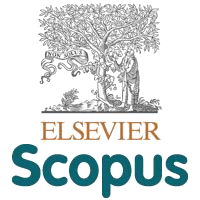An Analysis of Stylistic Features of English for Science and Technology Based on Functional Linguistics
Abstract
The paper starts from the definition of English for science and technology, and then elaborates the lexical features, syntactic features, and discourse features of English for science and technology based on the stylistic analysis theory of functional linguistics. It finds that in lexicon, English for science and technology has its unique features in etymology, word precision, objectivity and formality. There are three main word sources in English for science and technology. The first one is to borrow the original English words, but with different meanings. The second source is words absorbed from Latin and Greek. The third source is newly-formed words. In syntax, English for science and technology has wide application of passive voice to explain abstract concepts, objective theories, natural phenomena or experimental processes without too much subjectivity. Long and complete sentences are used in English for science and technology to express complex concepts with sufficient details and elaboration. In discourse, English for science and technology shows the characteristics of rigorous organization, strong logic and clear hierarchy. The discourse information flow pattern is that it often starts from generalization, then flows to specification, and ends with a summary. Present tense is used frequently for the discussion of principles, phenomena, objective facts or universal truths that are not limited by time. Modal verbs are also widely used to enhance objectivity and credibility. In English for science and technology, different cohesive devices are also applied to clarify the logical relation of discourse and to enhance the smooth flow of information.



